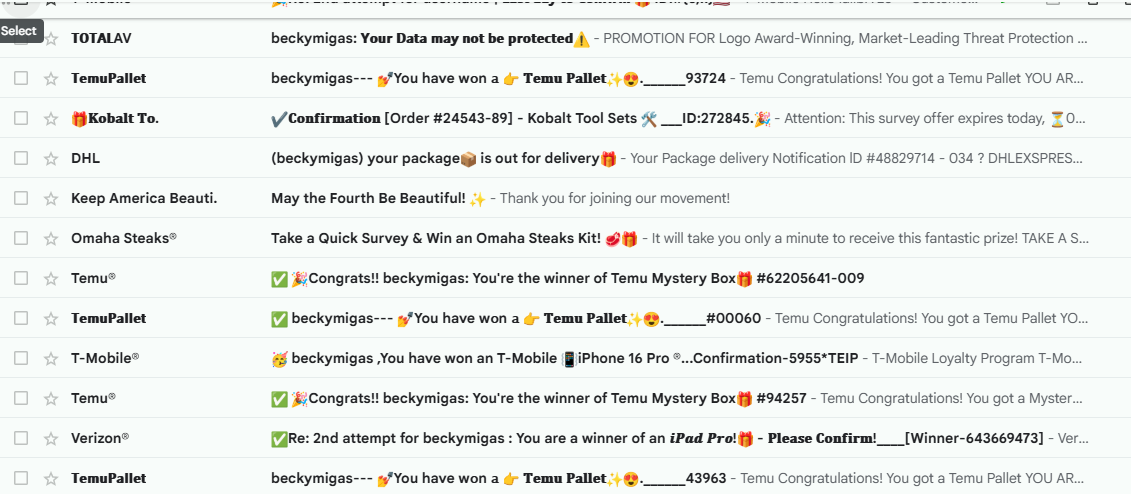The Hidden Environmental Truth About Tariffs Revealed...

I want to start by saying: I am not a tariff or economy expert. In fact, I generally think tariffs are bad, especially for small businesses. Supporting small, local businesses is essential for both our society and the environment. These businesses often rely on global manufacturing and shipping to offer competitive products and prices.
I’m writing this post purely to reflect on tariffs through the lens of recent reports about Shein and Temu. (You’ll learn more about them below.) It’s something I have been thinking about lately, as headlines pop up on my social feeds stating, “Temu to stop selling goods from China directly to US customers.” It has me wondering how this affects our consumer buying habits and the impact on the planet from my waste perspective.
Shein and Temu have been on the rise over the past few years. They’re Chinese companies making insanely cheap products and selling them to American consumers through social media like TikTok and Instagram, plus Google ads. One look at my junk folder, and you’ll see how Temu fills it with ads.
When I search for something online, I notice how they lure consumers in with their shockingly low prices. But these products are usually cheap plastic, not recyclable, and bad for the environment and people.

Let’s start with the basics.
If you’re not following the news (or if you’re reading this in the future), here’s where we stand: It’s 2025, and we are in the middle of a global “tariff war” triggered by the current U.S. President.
These tariffs have created big waves of uncertainty across the U.S. economy. They apply mainly to imports from China and are raising the cost of everyday consumer goods.
Since taking office, the new administration in the U.S. has slapped on a 145% tariff for most imported items. According to The Economist, a “$10 t-shirt now costs $1,450.” Can you imagine paying over $1,000 for a single t-shirt?
That’s where Shein and Temu come into the picture.
Who Are Shein and Temu?
Shein (pronounced She-in) is a Chinese fast fashion giant founded in 2008. It skyrocketed to global dominance by selling ultra-cheap, trendy clothing, mostly to Gen Z and young millennial shoppers via TikTok and other social media sites. Shein operates entirely online and ships directly from Chinese warehouses to customers worldwide.
Their strategy? Ultra-fast fashion. They churn out thousands of new styles daily, using real-time consumer data. This leads to short product lifecycles and constant turnover.
Shein has faced heavy criticism for:
- Massive textile waste
- Heavy use of synthetic fabrics like polyester (which sheds microplastics)
- Unethical supply chains
Environmental advocates say Shein’s disposable fashion encourages overconsumption and landfill waste. Numerous reports have raised labor rights concerns, pointing to unsafe working conditions and poor supply chain transparency.
Temu (pronounced tee-moo) is newer and followed in Shein’s footsteps. Launched in 2022 by PDD Holdings (parent company of Chinese tech giant Pinduoduo), it exploded in popularity thanks to aggressive discounts, viral marketing (including Super Bowl ads), and its vast range of dirt-cheap products—everything from clothing and electronics to home goods.
Temu connects U.S. consumers directly with Chinese manufacturers, bypassing middlemen. This cuts costs and undercuts U.S. and global competitors. But, like Shein, Temu promotes a throwaway culture, flooding the market with low-quality, hard-to-repair goods. The environmental cost? More waste, more emissions, more overconsumption.
OK my side note here – if you’re reading my newsletter and blog and buying from these companies, please, please, please reconsider your buying habits. It’s OK if you purchased from them in the past, but now you know the harm these companies cause. Awareness is key! Let’s continue

photo courtesy of Unsplash, Hobi industri
The U.S. Shipping Loophole
Here’s where things get interesting.
The U.S. de minimis rule — from the Latin meaning “about the smallest things” — allows goods under $800 per shipment to enter the country without import duties, tariffs, or formal customs clearance.
In plain English:
- If an overseas package is worth less than $800, it skips taxes and paperwork.
- This rule was meant for occasional small purchases — like souvenirs or gifts.
But companies like Shein and Temu have turned it into a business model. Instead of bulk shipments (which would get taxed), they ship millions of small packages directly to U.S. consumers, each under the $800 threshold.
This lets them dodge tariffs and duties that U.S. companies and bulk shippers still have to pay.
The result? A major cost advantage. But critics say it drives overconsumption, evades trade rules, and contributes to environmental damage through carbon-heavy shipping and—you guessed it—all that waste.
Want to learn more? Check out the U.S. Customs and Border Protection page on the de minimis exemption.
Back to Tariffs and Waste
Here’s the latest:
Because of these tariffs, Shein and Temu have announced they will stop shipping directly to U.S. customers. In February, an Executive Order moved to close the loophole.
According to BBC News:
“The executive order announcing the latest move said it was aimed at tackling the illegal importation of synthetic opioids like fentanyl. It said many Chinese shippers use deceptive practices to hide illicit substances in low-value packages ‘to exploit the de minimis exemption.’”
Source
This means Shein and Temu can no longer flood the U.S. market with ultra-cheap shipments, which is good news for the moment.

photo courtesy of Unsplash, Brett Jordan
A Moment to Pause
American consumers, already pinched by a slowing economy, are pulling back on spending at sites like Temu, Shein, and even Amazon due to the growing cost of goods due to the tariffs. Again, that’s good news … for now.
But here’s what I’m asking myself:
- What if we used this moment to rethink our habits?
- What if we stepped back from the constant buying of cheap, disposable items?
- What if this slowdown reminded us that we don’t need as much as we think we do?
We will always be consumers. That’s not the problem. The problem is buying cheap, fast, and in massive quantities. It's buying without consideration. It's buying because "the marketing" tells us to buy, not because we need these items. These items that only last a short amount of time. These items that can’t be properly recycled. These items that end up in landfills, oceans, and pollute our lands.
What if — just for this moment — we slowed down our consumption and enjoyed the world around us?
I don’t know what’s next or how long this slowdown will last. I know Temu is already working to find ways back into the U.S. market.
But for now, I will take this moment as a small environmental win—and I’ll celebrate that.
What are your thoughts on tariffs impact on the environment?
Share them with me!